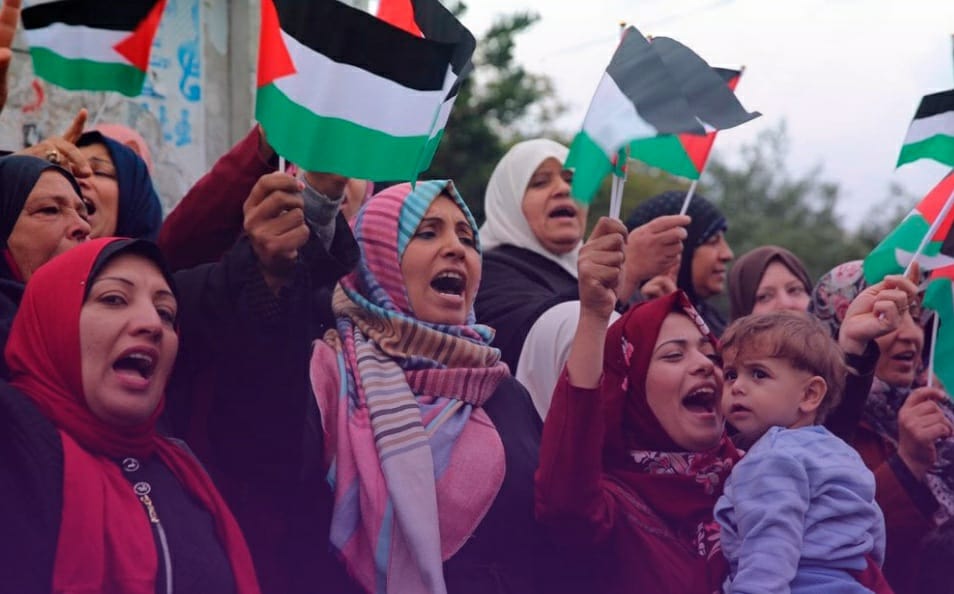Gaza Strip, a region embroiled in a prolonged conflict and under Israeli oppression since the 2007 blockade is marked by intense violence, political turmoil, and inequality. This challenging environment have deeply impacted Palestinian society, with women and children bearing the brunt of hardships. The Israeli blockade has led to high unemployment, economic deprivation, limited access to education and health services, and restricted mobility, disproportionately affecting women. These aspects have exacerbated gender inequalities, leading to domestic violence, physical and mental health issues, which remain unaddressed due to military escalations and limited access to healthcare facilities.
In the wake of the events on October 7, 2023, the situation in Gaza has deteriorated into a grave humanitarian emergency. The aftermath has left most of women and children displaced, wounded, and killed. Central to Palestinian society, women are the heart and soul of their people, preserving generational continuity, family unity, and cultural identity. I will briefly go through the multifaceted challenges faced by Gazan women amidst the ongoing crisis and will conclude with potential strategies for alleviating these complex conditions.
The intricate conditions of Women in Gaza through multiple interconnected dimensions can be explained as following:
1. Displacement of Women and Mortality:
According to the UN women, one million women and girls are displaced. This situation is further compounded by the statistics showing two mothers killed every hour, seven women every two hours, and around 10,000 children have lost their fathers. The relentless violence has destroyed residences, trapping many women under the rubble, including pregnant and lactating women and small children in appalling conditions. The staggering numbers of displaced and alarming mortalities not only shows the loss of life but also the disruption in social fabric of community.
2. Dismantling of Healthcare Infrastructure:
The World Health Organization (WHO) and United Nations agencies report that Israel has launched 117 attacks targeting Gaza’s healthcare system. This onslaught has resulted in the closure of 64% of primary health care units and left only 16 of 36 hospitals partially operational. The systematic dismantling of the healthcare system by Israeli air strikes has left women and children extremely vulnerable. Displaced women, often having to relocate multiple times, face the grim reality of childbirth in tents without prenatal care. Even in cases where women can access delivery rooms set up by women’s support organizations, they are forced to return to shelters made of plastic tarps, merely 2 hours after normal delivery and 6 hours post C-section. The destruction of healthcare infrastructure directly impacts the women’s well-being and are detrimental to maternal and infant health.
3. Perilous Living Conditions:
The overcrowded tents of displaced residents, deficiency of toilets, scarcity of water and food, and women struggling to live with strangers paints a vivid picture of dire living conditions. Women’s rights organizations have been trying their best to provide support and assistance, but ongoing escalations hampered their efforts. Due to inaccessibility of basic food, 50% people are anaemic and are facing communicable diseases like diarrhoea and bronchitis problems.
4. Psychological Stress and Trauma Experiences:
The perpetual threat of bombings and violence, coupled with the emotional strain of residing in a conflict zone, places toll on women’s mental health. The struggle to maintain a family together with the hunch of losing loved ones, cause immense anxiety. This is evident from the incidents like seizures during pregnancy due to untreated high blood pressure and episodes of sudden faintness triggered by relentless noise of bombardment and wrenching loss of children and relatives.
5. Compromised Reproductive and Sexual Health:
According to WHO reports, 5,500 women are due to give birth in the next 30 days, with no availability of medical treatment, forcing them to deliver in inhumane and dangerous conditions. Furthermore, the UNFPA reports over 690,000 menstruating women and girls have limited access to menstrual hygiene products, leading to the use of unhygienic alternatives. Sometimes they use nappies and tissues as replacement of menstrual products, only if available. A doctor from Rafa Hospital, as reported by Al Jazeera, mentioned that many women start taking tablets to delay their menstrual cycle, leading to urinary tract infections and vaginal complications, which further cause pelvic infections and sepsis. Women are forced to endure such grim conditions without any adequate supply of medical equipment and medicines.
6. Indirect toll on Children:
When women are in terrible conditions, children are ultimately impacted especially the newborn. Lacking access to adequate healthcare and nutrition for themselves, mothers struggle to provide for their infants, often resorting to preparing formula milk with contaminated water, which further deteriorates the condition. Hence, no proper vaccination and food for children, high infant mortality and maternal mortality rates indicate long term risk for the younger population.
The pain and trauma inflicted upon Gazan women call for an immediate ceasefire and an end to the violence. Establishing safe zones for civilians, restoring infrastructure, increasing humanitarian aid, and ensuring the safety and dignity of all people in Gaza, especially women and children, is imperative. Sustained international pressure on Israel is crucial to stopping the occupation that has long affected Gazan women. In conclusion, a peaceful resolution to the Israel-Palestine conflict is a long-term solution. Regional, national, and international efforts, backed by international human rights organizations, can pave the way towards improvement. It requires a synergy of humanitarian aid, public advocacy, and grassroots activism to navigate the complex labyrinth of conflict and occupation that dictates the plight of women in Gaza.

